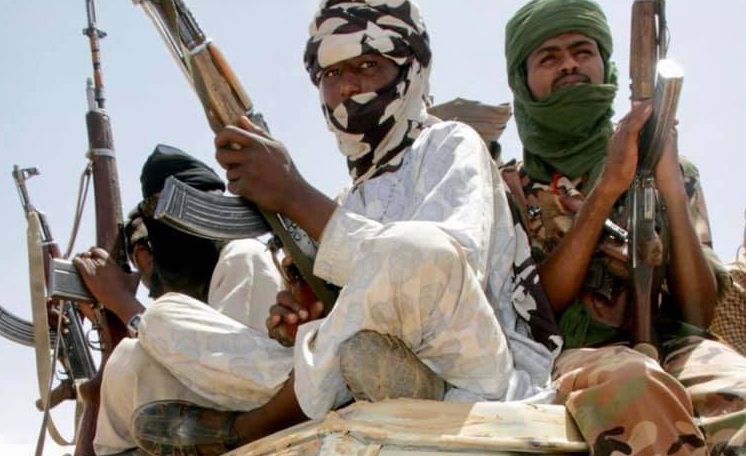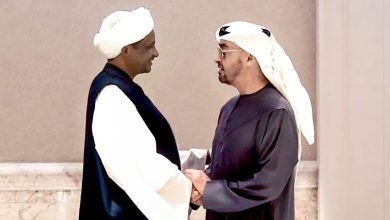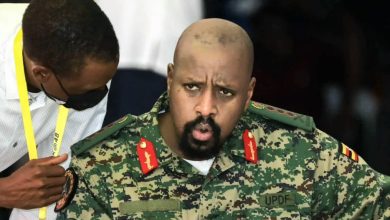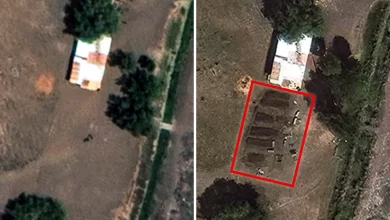Tribal Recruitment for the Militia: Igniting New Fires Amid the Flames of War

Sudan Events – Agencies
In recent weeks, the Rapid Support Forces (RSF) militia in Darfur and Kordofan have conducted intensive campaigns to recruit fighters along tribal lines, raising fresh concerns about prolonging the existing conflict. The RSF has tasked tribal leaders and allied clan chiefs with recruiting fighters in preparation for deployment to operational areas in the capital Khartoum, El Fasher in North Darfur, and other regions across Sudan.
The recruitment campaigns, which are geographically and regionally oriented, have intensified fears that the conflict in Sudan may escalate into tribal warfare. The discourse promoted by tribal leaders indicates that they are fighting with the RSF to assert their existence.
These recruitment efforts accelerated following an October 9 announcement by RSF leader Mohamed Hamdan Dagalo, calling for general mobilization and instructing his forces to immediately report to their military units to execute what he called “Plan B.”
The Appearance of Chief “Nimer”
In an indication that RSF recruitment efforts are taking a tribal turn, Chief Mukhtar Babo Nimer of the Misseriya tribes appeared before a large RSF military gathering at his tribal headquarters in the town of Muglad, marking his first appearance since the outbreak of the war. The gathering included militia leaders and tribal leaders from West Kordofan, where the Misseriya tribe—one of the largest groups contributing RSF leaders and soldiers after the Rizeigat—is centered.
The Misseriya aimed to use the military display to rally additional soldiers and send them to fight in Khartoum and Gezira, according to a tribal leader from West Kordofan.
In the early stages of the war, some Misseriya leaders opposed extending the conflict to West Kordofan and taking over Sudanese army positions. Others, however, supported the RSF’s expansionist plans in the area. Chief Nimer and 22 other leaders sent a letter to Dagalo on December 30, 2023, rejecting the war’s expansion into their region and the displacement of the army from their territories. They warned against targeting Sudan’s borders and damaging oil infrastructure if the RSF attempted to seize the army’s headquarters in West Kordofan.
However, shortly after this letter, the RSF launched an attack on the town of Babnousa in an attempt to capture it but failed due to the army’s determined defense. The RSF then shifted its battles toward the state capital, Al-Fulah.
Mobilization Leaders
Mobilization in South Darfur has taken on a distinct ethnic, tribal, and racial tone. In the Bulbul area, Tarjam tribal leader Mohamed Yaqoub Ibrahim emphasized the need for the tribe’s members to fight alongside the RSF and destroy El Fasher. This rhetoric is commonly used by tribal leaders to mobilize fighters.
The RSF has given tribal leaders in Darfur and Kordofan vehicles to help them travel within their regions to encourage their tribesmen to join the militia, according to sources close to these campaigns.
In South Darfur, Ali Hussein Dhay al-Nur, the brother of former RSF intelligence officer General Mudawi Hussein Dhay al-Nur (reportedly killed in an air raid at the beginning of the conflict), has been tasked with mobilizing the Rizeigat tribes, assisted by community leaders Ali Mahmoud Sharara, Said Dhay al-Nur, and others. Chief Fateh Ahmed Al-Samani Bashir oversees mobilization efforts within the Fallata tribe, supported by Alderman Marji Khalil (a long-time teacher in South Darfur), Alderman Abdul Rahman Abu Dura, and others. These efforts are supervised by RSF officers from the Fallata tribe, including Sheikh Hajar and another officer named Jalal.
According to local sources in Sudan Tribune, the Fallata tribe has established recruitment camps in the regions of Sargila, Rajaj, Bagaga, Al-Nadheef, Ghali Zana, Takuma, and Al-Tais, areas within the Telus and Buram districts of South Darfur.
Meanwhile, Toma Al-Hadi Dabaka, a prominent leader of the ruling National Congress Party, has been actively loyal to the RSF, leading recruitment efforts within his tribe, the Beni Halba. In the Misseriya tribe in South Darfur, Ghulamuddin Taj Abdulkadir, son of the tribe’s chief, is in charge of mobilizing fighters.
In the Habaniya tribe, Chief Yusuf Ali Al-Ghali heads the mobilization campaign, with support from Aldermen Talat Al-Shanahi, Hassan Al-Fahri, Othman Azuddin, and others.
Responsibility for Killing and Looting
Ali Mansour, a journalist from South Darfur, told Sudan Tribune that the RSF’s tribal recruitment is racialized and incentivizes looting, which they refer to as “spoils.” Mansour added, “This was openly stated by Mohamed Yaqoub and Toma Al-Hadi Dabaka, which explains why young men are so quick to loot and kill without hesitation.” He blamed the RSF and tribal leaders for encouraging this violence out of self-interest.
Mansour also accused tribal leaders in South Darfur of inciting division and stated that they bear responsibility for the civilian killings, looting, and rape occurring in the area. “These leaders no longer respect traditional values and have become integral to the chaos, allowing their followers to steal, as Chief Toma Al-Hadi Dabaka declared that homes, cars, and money in Nyala belong to them.”
Mansour reported that RSF Deputy Commander Abdul Rahim Dagalo has requested each tribe in Darfur to provide 600 fighters to immediately join the battlefronts. He anticipates tribal leaders will struggle to meet this demand, as many young people are reluctant to fight for the RSF due to the high risk of death.
Further Confirmation
Chief Dhayf Issa Ali, head of the Rizeigat Coordination Council, confirmed that recruitment for the RSF is conducted on a racial basis, under misleading rhetoric from tribal leaders. He stated that these leaders manipulate young people with emotional, tribal sentiments and monetary incentives, leading them into death traps.
Ali added that the council is working to raise awareness among the youth about the dangers of these divisive messages, which has reduced recruitment efforts as more people in RSF-controlled areas voice opposition.
Narrowing Reconciliation Prospects
Darfur affairs expert and lawyer Abdel-Basit Al-Haj said the RSF’s tribal recruitment campaigns diminish chances for social reconciliation and deepen societal fragmentation by increasing tensions and promoting tribalism over equal citizenship and civil peace.
Al-Haj warned that these actions will have long-term political consequences by embedding militarism over reconciliation and social equality, as well as economic consequences by equating wealth with armed power. This militarization creates an unstable security situation that prevents lasting peace in the region and perpetuates the cycle of war.



